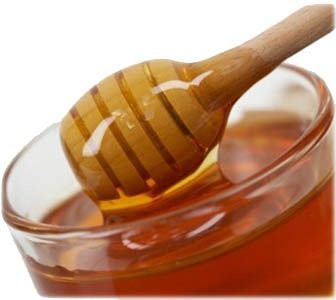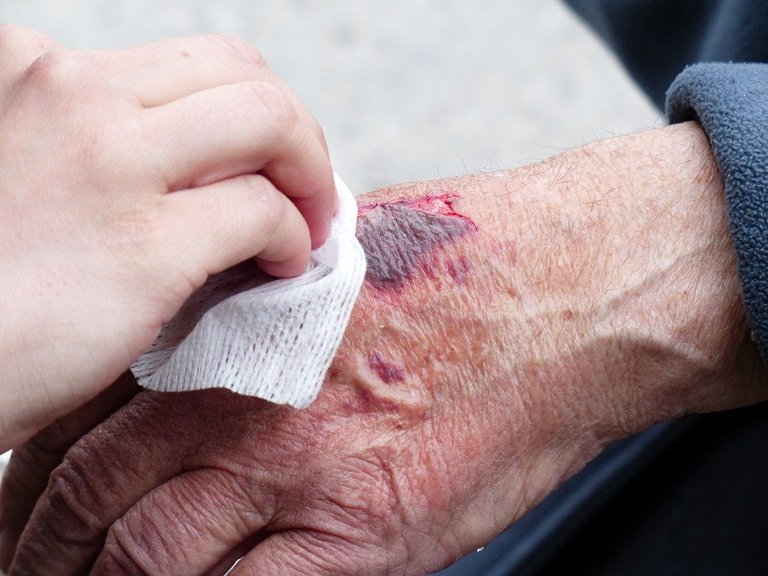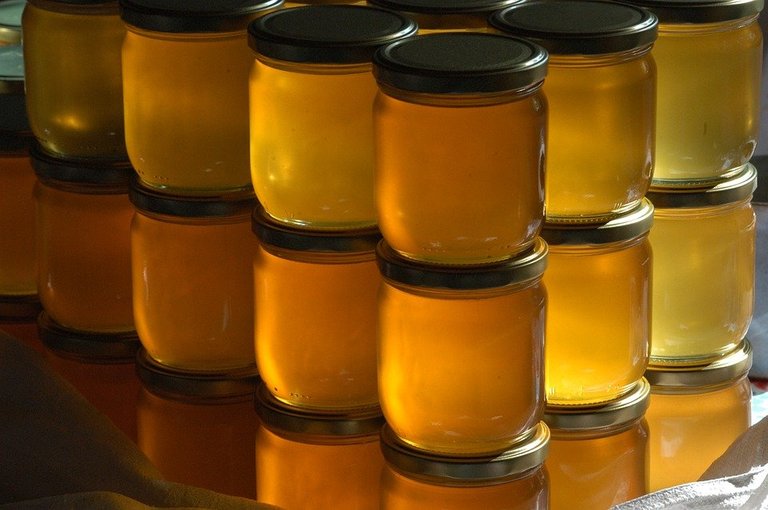I think I have made my rejection of most herbal medicines quite clear in a few of my previous posts, as their alleged effects are rarely supported by evidence, or sometimes even by logic. There have been not few occasions in which a patient has come to my office "treating" himself with naturopathic medications - such as the use of a clove of garlic to keep high blood pressure at bay - in a pretty bad condition, and sometimes even with kidney damage due to continuous consumption of herbal infusions. We should know that while it is true that many drugs come from plants, not everything natural is good, an excellent example of this is the fact that the pandemic we are currently in has probably been caused by traditional Chinese medicine, and its emphasis on the consumption of exotic animals. And while most fans of "naturopathic medicine" or homeopathy do not go to such extremes, many apparently innocent plants can damage the kidneys, which are responsible for filtering everything that enters the body, from that McDonald’s burger with more chemicals than average oil refinery to the pills you bought at your local pharmacy to "boost your energy" or lose weight.
But I am not against naturopathic products just because they are naturists, before you see me as a pawn of the big pharmaceutical companies and before they think that my next articles will be in favor of genetically modified foods or fracking; but for the fact that, as I said, they rarely have studies to back up their supposed effects. Even the actual amount of the product in each capsule or package often does not match what it says on the packaging, as regulations for natural products are quite lax, or even non-existent. Even so, I acknowledge when enough studies have been done to support the use of any natural product in the treatment of diseases, like for example, today's topic: the use of honey as a wound dressing.

The high nutritional content of honey is well known to all, with a good amount of vitamins, minerals, and even proteins that make it practically a complete meal on its own. But none of that really matters to us; this is not a nutrition blog. What is truly important to us is the fact that, since the times of the Egyptian pharaohs, honey has been used to accelerate wound healing and prevent infections. There are numerous studies that have proven the effectiveness of honey to keep infections at bay and accelerate the closing and curing of wounds, abrasions and burns, now, you may not find much sense in this, and you may even think that introducing a potentially contaminated substance, As natural as it is, to an open wound is just begging for it to be filled with bacteria and other microorganisms. I thought more or less the same thing when I saw its use for the first time in the hospital where I started my internships, but when researching about it, it actually has a solid scientific basis behind it, beyond “bacteria like sweets, maybe..?”.
On that occasion, I remember asking the doctor who used it to cover a burn before bandaging it, and his response was that honey acted as an antiseptic, killing microorganisms. The truth is not exactly that, although it is quite close. When something has an antibacterial or antiseptic effect, it is usually because they act by destroying the layer made of lipids that cover the majority of microorganisms, killing them; but the effect of honey is different, although just as effective. Honey is composed mostly of sugars, mainly fructose and glucose, along with a variety of proteins, vitamins, minerals and acids of various types, but what makes it special is its low content of water (less than one 20%), which makes it have a very high osmolarity, that is, it has a large number of highly concentrated components in a small amount of solute, in this case water. Due to this, it has an osmotic effect; it basically "sucks" the water or any other solute with which it comes into contact, since the law of osmosis tells us that every solute will always go from the least concentrated solution to the most concentrated. Why is this important? Well, remember that every living organism needs water to survive, and this also includes bacteria. So when applying honey to a wound, it "sucks" the water out of any bacteria it comes into contact with, killing it as efficiently as any alcohol. You might think that sucking the wound’s water could dehydrate the underlying tissue, but it has been shown that if the blood circulation is not diminished, it easily replaces the lost fluid and the osmotic effect only removes the lymph (the transparent liquid that sometimes accumulates on the surface of abrasions and scratches) thus benefiting the healing process.

But this is not all: within the components of honey are, as I said, a variety of organic acids such as gluconic acid, which give it a low pH. This high acidity hinders bacterial growth, reduces the production of toxic ammonia, and promotes healing by increasing the release of oxygen by hemoglobin. In addition to this, honey also has hydrogen peroxide, with a powerful and well-known antiseptic effect. Its acidity and osmolarity along with the hydrogen peroxide work together to not only kill bacteria present in wounds, but also prevent the formation of new colonies. And not only this: due to the presence of glucose, bacteria (in the short time they are still present) use this instead of amino acids for their metabolism, and instead of producing the ammonium and sulfur compounds that normally give infections their characteristically unpleasant smell, they produce odorless lactic acid, quickly eliminating the bad smell of any wound.
Now, I know this is all sounding too good to be true, but I'm not even done yet. Honey is proven to have an anti-inflammatory effect, as it acts as an antioxidant and eliminates the production of free radicals and prostaglandins, substances responsible for inflammation. By suppressing this process, the blood vessels open, thus decreasing edema (swelling due to fluid accumulation) and exudate, and also helping to relieve pain by avoiding pressure on the nerve endings caused by inflammation. When applied in bandages or dressings, it prevents them from adhering to the skin, facilitating their subsequent removal and, of course, the pain that usually accompanies it.
By this point you are surely wondering why honey is not universally used to cover all kinds of wounds, injuries and burns, and at what point it fell into disuse, knowing that thousands of years ago it was already being applied for medical purposes. Well, there are some small details that must be mentioned, and that prevent everything from being as miraculous as it sounds: remember that honey comes from the nectar of flowers, and due to this origin it may contain spores that in some patients could cause allergic reactions or adverse effects, so it must always be sterilized to be medically suitable. However, it has been shown that when heated, although these spores are destroyed, their antibacterial effect is also eliminated, so gamma radiation should be used to purify it in such a way that it retains all its properties, although this can be difficult in developing countries; In my country (Venezuela) honey often comes straight out of the honeycomb and to the wound, and although I have never seen any adverse reaction, this mode of use is hardly ideal. In addition to this, occasionally the acidic content of honey can cause mild and temporary pain when applied to inflamed lesions. It should also be noted that although it contains hydrogen peroxide, it is normally diluted by the exudate produced by the wound, inhibiting its effect and leaving only the acidity and the osmotic effect as those responsible for eliminating bacteria, although it is true that these two are enough. Finally, if it is diluted too much, be it by exudate, blood or other liquids, its beneficial effects are lost, so it should only be used in wounds that are not actively bleeding.

But even with all this, there is solid evidence that honey is very useful to help heal any wound or burn, stimulating healing, deodorizing, and preventing infections. But what is really important about this are the studies that prove it, it is not a tradition that has been passed down from generation to generation, nor a magic cure promoted by the neighboring herbalist who teaches yoga courses and says that she can cure cancer with Reiki, it is a chemical and physical effect, reproducible in controlled environments. This leaves us with the teaching that natural medicines can be truly effective, but this does not depend on the number of people defending them, but on the evidence behind it. In short, less believing Herbalife sellers, and more basing decisions on scientific evidence.
References:
- Wounds Research - Honey: a Biologic wound dressing
- Evidence for Clinical Use of Honey in Wound Healing as an Anti-bacterial, Anti-inflammatory Anti-oxidant and Anti-viral Agent: a Review
- Presentation of clinical cases about the use of honey on wound treatment
- Wikipedia – Hydrogen Peroxide
- Wikipedia – Osmosis
Except for handling vampires, garlic… well… Ok now let's go back to the post itself :)
With respect to that sentence:
I would like to say the there are many natural products, like uranium or lead, that are clearly not safe to use. In short, I agree with you: natural does not mean good at all. And a drug is a drug (to get closer to the topic). It acts on the body chemicals and may (will) induce changes that could be good or bad.
Oh! I didn’t know that! So in short, honey has the property of drying the wounds and butting itself in the way of the bacteria evolution. This is the key, isn’t it?
Indeed, both things most of the time; all drugs can have some side effects, but it's a thing of risks vs rewards.
Yeah, it's that, basically! It's odd that a technically liquid substance can dry something, but it does explain why eating something that is very sweet often makes us thirsty; it's the same principle.
Totally! Risks and rewards... and the next topic will be vaccination ^^
Lot of new info about honey :)
I was unaware that honey has low pH
I'm glad you learned something new, that's what I'm here for ;)
Very informative and well written article. I had read in the past about how Manuka honey from Australia was very effective in treating wounds (and was even employed in this capacity by the US army), but I never knew that similar medical properties extended to all sorts of honey. Manuka honey is so important to Australia that they have a state run Manuka honey association to research it further!
https://www.manukaaustralia.org.au/science/
Thank you! Indeed Manuka honey is the most commonly used for medical purposes, though I didn't know it came from Australia. I'll check out that link!
Also comes from New Zealand. In fact we've been doing more research on this type of honey longer than Australia. Typical Aussies always taking credit for our work. 😂
Very interesting article! I didn't even know honey could be used as a wound dressing much less that it was strongly backed by science.
Thank you! I thought the same thing the first time I saw it, but I taught me to never dismiss something without a quick Google search
Thanks for your contribution to the STEMsocial community. Feel free to join us on discord to get to know the rest of us!
Please consider supporting our funding proposal, approving our witness (@stem.witness) or delegating to the @stemsocial account (for some ROI).
Please consider using the STEMsocial app app and including @stemsocial as a beneficiary to get a stronger support.